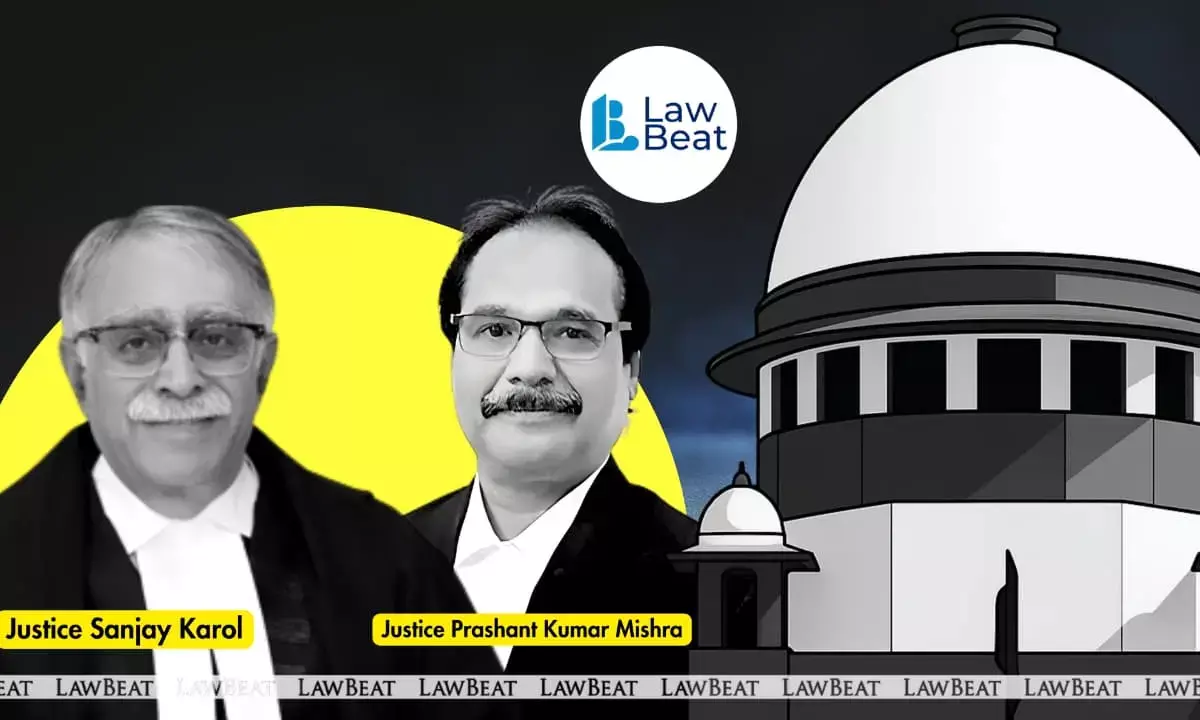Supreme Court Bars Use of ‘Split Multiplier’ to Compute MV Act Compensation

The Supreme Court asks courts not to use split multiplier for calculating accident death compensation under the MV Act
The Supreme Court has ruled that the concept of “split multiplier” which is a method sometimes used to calculate compensation in motor accident cases, is a concept foreign to the Motor Vehicles Act, 1988, and should not be applied by tribunals or courts.
A bench of Justices Sanjay Karol and Prashant Kumar Mishra held that the deceased person’s income at the time of death should be taken as the basis for calculating compensation. Court further clarified that retirement or superannuation cannot be treated as an “exceptional circumstance” justifying the use of a split multiplier.
“It is only natural that a person who enters service must also exit at some point. That cannot be seen as a negative factor against the deceased or an injured person suffering from permanent disability,” the bench observed.
Court was hearing a civil appeal filed by Preetha Krishnan and others, challenging a June 28, 2024 judgment of the Kerala High Court that reduced their compensation from Rs. 44,04,912 to Rs. 35,10,144. The High Court had lowered the amount by applying the split multiplier principle.
The case arose from a road accident on August 3, 2012, when 51-year-old T.I. Krishnan, an Assistant Engineer in the Public Works Department, died after a bus collided with his car on the Pala–Thodupuzha Road. His wife and children argued that the High Court erred in applying the split multiplier without considering that Krishnan could have continued earning even after retirement, given his qualifications and experience.
Agreeing with this argument, the Supreme Court said, “The reasoning adopted by the High Court is that the deceased would have shortly superannuated and, thereafter, his monthly income would have reduced by around 50%. We find force in the challenge to this reasoning".
The bench noted that courts across the country have adopted inconsistent approaches on whether to apply the split multiplier, even within the same High Court. Such inconsistency, it said, leaves tribunals “bereft of guidance,” causing unjustified variations in compensation and raising concerns about judicial discipline.
Court cited the landmark Sarla Verma vs DTC (2009) judgment, which brought a structured and uniform approach to calculating compensation in motor accident cases. That judgment had also cautioned against using the number of years left in service as the basis for determining the multiplier, terming it a source of confusion.
Reiterating earlier judgments, the bench said that a split multiplier can only be used in exceptional cases, and even then, the reasons must be specifically recorded. “Retirement from service is not an ‘exceptional’ or ‘cogent’ circumstance. In fact, it is difficult to even conceive what such exceptional cases may be,” the court observed.
Referring to the Pranay Sethi (2017) decision, the bench added that there is “no room whatsoever” for applying a split multiplier under the Motor Vehicles Act. “When dealing with a beneficial legislation founded on the principle of just compensation, it is most prudent to tread the path of certainty,” it said.
Accordingly, the Supreme Court allowed the appeal and enhanced the compensation to Rs. 47,76,794, with interest at 7.5% as awarded by the tribunal, to be paid by November 30, 2025.
The directions in this judgment will apply prospectively, the bench clarified, and will not affect past High Court judgments. It directed the Registrar (Judicial) to circulate copies of the order to all High Courts and Motor Accident Claims Tribunals for necessary action.
Case Title: Preetha Krishnan & Ors Vs The United India Insurance Co Ltd & Ors
Judgment Date: November 6, 2025
Bench: Justices Sanjay Karol and Prashant Kumar Mishra
